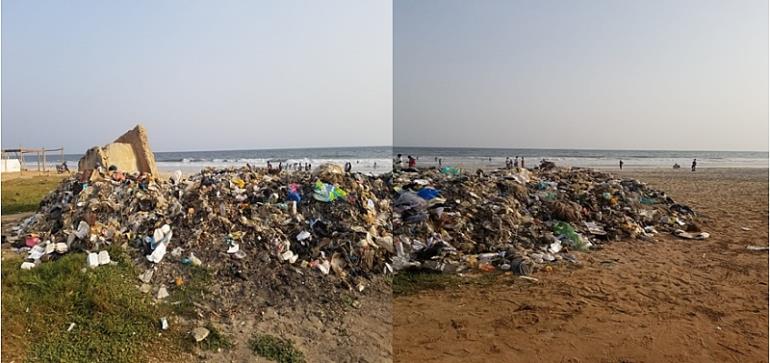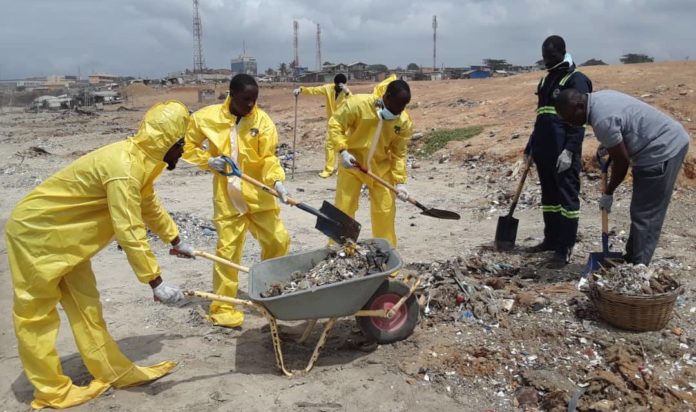
What Is The Goal Of Waste Management Systems In Ghana?
Waste management is one of the principal environmental challenges of our world today. There is, therefore, a need for innovative methods or recycling technologies that would enable us to effectively manage our waste. As the world is currently dealing with the evolving ton of plastic, let’s not forget to do our fair share by reducing our footprint on the environment.
Ghana is faced with numerous issues as a result of waste. These issues range from the hazardous (electronic waste, batteries, light bulbs, oil disposal) to the non-hazardous waste (organic waste, single-use plastic, construction/demolition waste, textiles, etc).
In Ghana, the “3Rs” (which is the reduce, reuse, recycle) is hard to implement due to financial constraints and competing for national development priorities making our environment not pristine.
Waste management specifically plastics has become the environmental boogeyman of our time especially with single-use plastic threatening our oceans, aquatic animals and water bodies, integrating into our food chain and production units. How do we close the loop in Ghana to prevent these single-use plastics like water bottles, straws, sachet plastic, grocery bags and even our used tires from ending up in our shared environment and landfills?
This brings us back to the question of what our goal is concerning waste management systems? Is it to maximize diversion by recycling, providing well labelled appropriate bins and minimize waste by creating awareness on the importance of recycling by distributing educational materials?
What about banning plastic or organising community environment days on single-use plastic/hazardous waste? Opening more landfills for continuous dumping of our waste without sorting will, in the long run, create leachate and contaminate our groundwater. Will we continue to view waste management as not a big problem in Ghana and ignore it?
Let’s take a look at our policy priorities at the local assemblies, it is uncommon to see a lofty diversion target set in the distant future for example 25% diversion by 2025 or 2030. These priorities/goals come with a cost, including education, rolling out a new program (collection of food waste), buying well-labeled bins, waste audits to understand the waste generated and creating more landfills or recycling centers.
Presently, Ghana is experiencing the effect of poorly designed waste management systems. For instance, single-use plastics end up in the environment, polluting and clogging up our drainage systems, contributing to flooding in the rainy seasons, breeding more mosquitoes and health-related problems. To achieve the United Nations Sustainable Development Goal (UNSDG) eleven (11) which promotes the safe removal and management of waste within communities, waste management should be given priority in Ghana.
It is about time Ghanaians redefine the impossible and find possibilities in every act. To address the issues of waste management in Ghana, we need to:
- Tackle the issue of behavioural change by changing people’s mindset to do the right thing when it comes to disposing of waste. As an example, waste education at school should be added to the basic school curriculum to teach the next generation about waste segregation. Supplying educational materials to the public to teach where each waste type belongs or creating a computer waste app for easy access to information.
- Put in place infrastructure to handle the waste. An example is binned at designated places where people can toss their waste.
- Create innovative methods or recycling technologies that would enable us effectively to manage our waste. For instance, investment in recycling plants will enable our recyclable waste to be captured and sold for profit to boost the economy.
- Set up pragmatic policy (by-laws) to address single-use plastics/waste issues in our various communities and enforcement of the law. For instance, there should be fines for dumping waste inappropriately. All offices should practise the “3Rs”. All schools should have well-labelled bins to enable segregation.
- Establish a depot. A depot refers to a licensed place that takes beverage containers (non-hazardous) or electronics (hazardous) from the public. These depots should be run by the government or private co-operatives that have contact information (website, location and reliable call centers). For example, Greater Accra should have at least 5 depots, Kumasi 3 depots to address our hazardous waste. We must take into consideration how the public drop off facilities can be enhanced for easy access.
- Consider for the future of integrated waste management system planning by setting up strong policies. A policy to ban the importation of most electronic waste (e-waste) that isn’t energy-efficient and outdated would help. For example, is the case of Agbogbloshie – a place in Accra where most e-waste is burnt openly for scraps.
- Build a waste-to-energy plant that will aid in addressing the waste problems and power debacle Ghana is facing (locally referred to as ‘dumsor’). This will reduce the strain on the national grid and ensure a reliable, efficient and effective power supply. We can also apply chemical recycling where we can generate fuel from the waste for our day to day activities like powering government fleet of vehicles or generators.
Let us not forget that information is a powerful tool and when people understand it, they tend to do the right things by putting waste where it belongs, or by reducing their consumption. Our health is our wealth!
By N. Adjei – A passionate environmentalist with experience in waste, GHG and energy planning software, RetScreen International Expert. He currently works for the 4TH largest City in North America, Department of Solid Waste Division. Currently developing a Business Plus Model that will be delivered to the Ministry of Energy to aid the energy crisis. It is his phantasmagoria to see Ghana go 100% renewable energy. Solar is doable, the time is right so is the price. It is for the hoi polloi. Follow him on Instagram @EnvironmentalistNana.
Source : Modern Ghana


